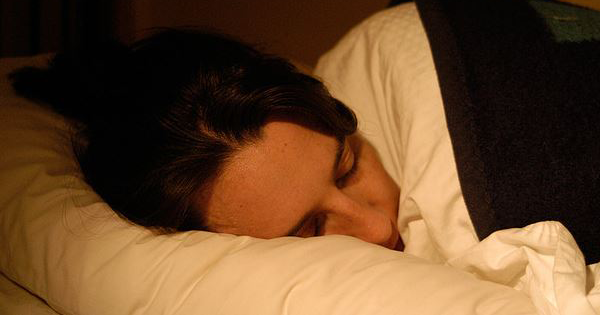For many of us, the end of the day is a time to relax, unwind, and recharge with a good night’s sleep.
But for others, the moment your head hits the pillow might also be the perfect time to start obsessing over that project you have due tomorrow, or what you forgot to buy at the store earlier.
A poor night of sleep has the power to affect us for the entire day—maybe even for the rest of the week. You may wake up feeling groggy, sluggish, and just overall unprepared to do anything productive for the next eight hours.
While you’ll never be able to avoid a random sleepless night here and there, you can adopt some great habits that regularly promote better sleep.
Here are 6 effective ways to sleep better—from the moment you wake up to the second you crawl back into bed:
- Stick to a sleep schedule: Even on weekends and holidays, try to go to sleep and wake up within an hour of your weekday schedule. Staying up late and catching up on sleep Saturday morning will only make it harder to fall asleep once Monday rolls around. Try setting your alarm every day for the next two weeks and see if that helps improve your sleep!
- Exercise Early: Just 20 minutes of exercise each day can help you feel alert and energized throughout the day—and help you sleep better at night! If you’re already a religious gymgoer, then your sleep problems may be resulting from the time of day you usually exercise. If you’re waiting to hit the gym until after your get off work around 7 p.m., then your body is probably releasing a rush of adrenaline that’s still flowing by the time you crawl into bed. Most health experts agree that high-intensity exercise is best done in the morning or early afternoon.
- Drink Less Caffeine: That 3 p.m. latte you had to push through the last couple hours of work might be keeping you up at night. Caffeine can stay in your system for up to six hours, so it’s important to steer clear of that mid-afternoon boost. In fact, a study published in the Journal of Clinical Sleep Medicine found that consuming caffeine six hours before bed kept so many of their participants up at night that it reduced the total sleep amount by more than an hour!
- Don’t Eat Before Bed: In general, most health experts say you shouldn’t eat within three hours before going to bed. You always want to allow your body enough time to digest a large meal, plus falling asleep on a full stomach raises your risk of tossing and turning with a stomach ache. That said, you can just as easily have a sleepless night if you’re so hungry that your stomach grumbles are keeping you awake. If you do opt for a little bedtime snack, try one that will satisfy your appetite and help you sleep.
- Turn Off the Lights: The blue light from your phone and computer screen can mess with your ability to fall asleep. It has been shown to suppress the production of a chemical in your brain called melatonin, which helps you fall asleep. If you’re truly committed to getting a better night’s sleep, turn off the screens at least two hours before bed and read a book instead.
- Wear Socks: When you’re just about to fall asleep, your body starts to direct blood toward your extremities, like your feet. A study published in Nature suggests that keeping your feet warm in bed helps promote better circulation, blood vessel dilation, and faster sleep onset!
Do you have any great tips for getting a better night's sleep? Tell us in the comments!
Photo Copyright © 2015 thewebprincess/Flickr





